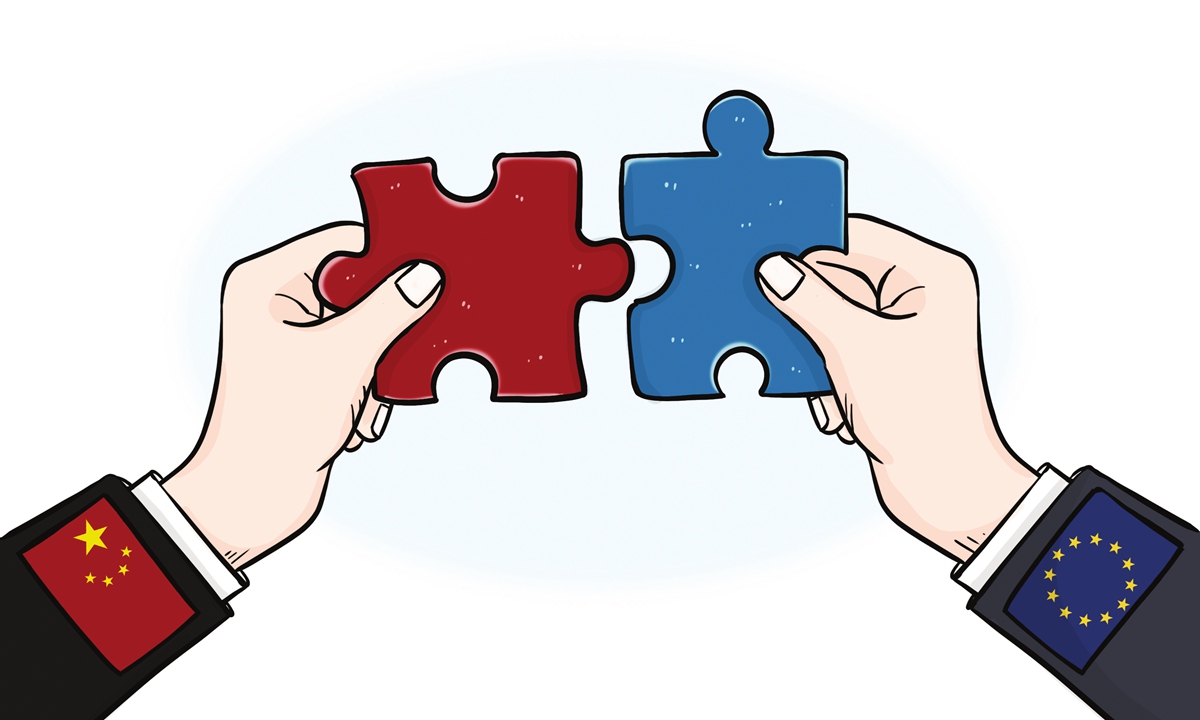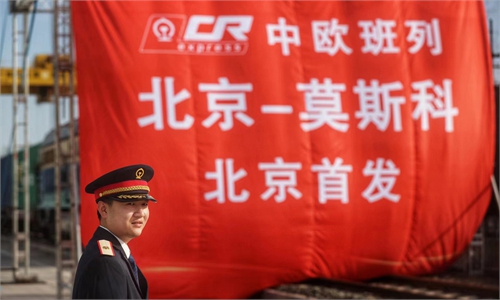China-Europe relations could flourish without black-and-white mindset: Global Times editorial

China EU relations
Since the visits from German Chancellor Olaf Scholz in November last year and President of the European Council Charles Michel to China in December last year, China-Europe relations have shown signs of recovery, with a wave of recent intensive interactions. Pedro Sanchez, prime minister of Spain, kicked off his visit to China on Wednesday. French President Emmanuel Macron and European Commission President Ursula von der Leyen have both stated that they will visit China next week. According to German media reports, German Foreign Minister Annalena Baerbock is also looking to visit China in mid-April. Will this diplomatic surge help push China-Europe relations to rebound and even usher in an era of flourishing ties?
Against this backdrop, the speech by European Commission President von der Leyen on the prospects of China-Europe relations, delivered at a discussion organized by two major think tanks, the European Policy Centre and the Mercator Institute for China Studies, has attracted attention from all sectors. This address is not only seen as her first comprehensive statement on China-Europe relations as the head of the European Commission, but also as setting the tone for her upcoming visit to China.
Von der Leyen began her speech with the line "Our relationship with China is one of the most intricate and important anywhere in the world" and ended it with "China is a fascinating and complex mix of history, progress and challenges," giving signals that were both new and old, clear and contradictory. She reiterated that China's moves in the Russia-Ukraine crisis "will be a determining factor for EU-China relations going forward," echoing Washington's tone that China seeks to "change the international order with China at its center." But she also underlined that China-Europe relations are not black and white, and that their story with China does not need to be a defensive one. She made it clear that decoupling from China is neither viable nor in Europe's interests, but also emphasized a so-called "economic de-risking" strategy that involves many protectionist elements.
Judging from this speech, we can see the shadow of various debates on Europe's China policy over the past period, including "naive views on China," "reducing dependence on China," "China's special responsibility in the Russia-Ukraine conflict," and "emphasizing the differences in ideology between China and Europe," which reflects the fact that Europe's China policy is still in the midst of a debate.However, instead of looking for a list of differences or contradictions between China and Europe and using it to diagnose the China-Europe relationship, it is better to acknowledge one consensus that cannot be ignored and that was reflected in von der Leyen's speech: Europe "cannot lose China" and should continue to maintain contact with China.
It should be said that this is the latest effort by EU leaders to find a position for the EU amid the changing dynamics of major power relations, after Michel stressed Europe's strategic autonomy, suggesting that Europe cannot blindly stand with the US, and the EU's High Representative for Foreign Affairs and Security Policy, Josep Borrell, stated that the EU would not follow the US' toughest policies on China. It goes without saying that the EU's policy toward China currently faces contradictions and dilemmas, but there can be no doubt that various sectors hope to maintain the possibility of cooperation with China independently from the US.
This creates a certain foundation for the return of a rational and pragmatic attitude to Europe's China policy. In fact, regardless of the ups and downs in the political and diplomatic relations between China and Europe in recent years, China's role in the prosperity and growth prospects pursued by the EU has only increased since China was the EU's largest trading partner for two consecutive years in 2020 and 2021, not to mention the fact that trade between China and Europe has continued to grow steadily in recent years, with a daily import and export value of over 2 billion euros on average. In light of the impact on financial stability in Europe from the Silicon Valley Bank crisis and the significant amount of manufacturing taken away from Europe by the US since the Russia-Ukraine conflict, the EU should be even more aware of this fact.
Renowned scholar Kishore Mahbubani once gave a suggestion to Europe, hoping that it could learn from Southeast Asia and repeatedly remind the US: don't force us to take sides, we have more important problems to solve. In fact, having understood where their own interests lie and what the more important issues are, it should not be difficult for them to answer the question of how to cooperate with China. There are no fundamental conflicts of interest between China and Europe, and their common interests far outweigh the divergences. This fundamental aspect should be recognized in Europe's "strategic autonomy."
Friendship is the main tone and cooperation is the overall goal of China's policy toward Europe. China has already expressed this attitude to the European side on many occasions. The Chinese side welcomes the visits of European leaders with open arms and is willing to engage in practical dialogue and communication. However, the blossoming of China-Europe relations requires both sides to meet each other half way.



